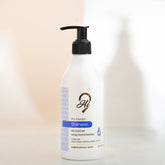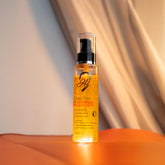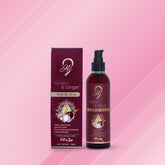How to treat Dry Skin: Diagnosis and Treatment
Dry Skin: Diagnosis and Treatment
We need to take care of our skin, especially during the winter or even regularly. Everyone has dry skin from time to time due to weather changes or simply because of age. Dry skin is caused by less retention of oils or water on the surface of the skin, leading to a weakened skin barrier that doesn’t develop moisture.
This condition commonly affects hands and arms, and the dry skin symptoms are itching, scaling, and cracking. However, if dry skin is a consistent occurrence with nothing that makes you identify it, then it is time to visit a dermatologist. It is treatable, so the doctor will suggest specific treatments and help resolve the condition.
The doctor will first examine your medical history and examine you. He or she will try to understand your habits, routines, and how this condition started. Depending on the diagnosis, the doctor may suggest tests if the condition is medical. Sometimes, it is the cause of thyroid or hypothyroidism, dermatitis, or psoriasis.
In most cases, certain lifestyle changes are all that needs to be done to treat it. Frequent hand washing or sanitising can also lead to dry skin; hence, it is necessary to keep moisturising it.
What are the Causes of Dry Skin?
When your skin is dehydrated, it tends to lose water and therefore become dry. The following are some of the dry skin causes:
- Ageing: As you get older, your skin sags and produces less oil, thus risking dryness.
- Genetics: Sometimes, it is purely genetic; you are at risk of experiencing eczema or allergic contact dermatitis if any of these conditions run in your family.
- Weather change: Your skin can get very dry very quickly during the winter season when humidity levels are low. High levels of humidity keep your skin from drying out in the summer.
- Bathing habits: Dry skin is caused by frequent bathing or hand washing. This is why moisturising after you shower or wash your hands is essential.
Types of Dry Skin
Certain medical conditions cause the skin to dry:
Dermatitis is a term that causes skin irritation. It is a form of extremely dry skin and has many causes involving itchy, dry skin or a rash. Sometimes the skin can have blisters, ooze, or flake off. Here are the different types of dermatitis:
1. Contact Dermatitis
This is caused by either direct contact with the substance or an allergic reaction to it. The substances can include, fragrances, cosmetics, jewellery, plants, or bleach. It isn’t contagious, but it can make you feel uncomfortable.
2. Seborrheic Dermatitis
Seborrheic dermatitis is a skin condition that usually affects the scalp. It develops when your skin produces too much oil, leading to skin inflammation and dandruff. The skin appears to be red and itchy. It is common in infants but doesn’t cause harm. Medications generally help manage the symptoms.
3. Atopic Dermatitis
Atopic dermatitis, commonly known as eczema, is a long-lasting and chronic condition causing dry patches on the skin. Typically developing in young children who have a family history. It causes the skin to be dry, itchy and inflamed. Although it can be uncomfortable, it is not contagious. Eczema can appear anywhere on the body. Using creams or ointments can provide relief from this skin condition.
Some lifestyle changes can help you make your skin better and healthy.
1. Wash Your Face at Least Twice a Day
Choose a gentle cleanser such as the Hi9 Green Tea & Chamomile Face Wash, a nonfoaming cleanser on your face twice a day. And cleanse your skin after you exercise. Certain products that contain stearic acid or linoleic acid can irritate your skin. People with sensitive skin should wash their faces once a day.
Apply moisturiser and only use products that are cream- or oil-based. A moisturiser with built-in sun protection and an SPF of at least 30 is a better solution Keep reapplying sunscreen after a few hours.
2. Moisturize Your Skin
To prevent extremely dry skin on the face, apply moisturiser throughout the day at several intervals. But only use the products that suit your skin. Look for products that don’t irritate your skin further and avoid products that contain sodium lauryl sulfate, which causes dryness. You may have to only use sunscreen if you have oily skin. Hi9 Hyaluronic Acid Day Cream provides UV protection.
3. Limit bath Time:
Not more than 5–10 minutes long and use a warm shower because it can save your skin from stripping off natural oils—Pat, instead of rubbing, your skin with a towel.
4. Plan to Protect Your Skin
If your job requires you to work in water or with certain chemicals, you must have a plan to protect your skin from severe dryness. Choose garments that cause no irritation, such as cotton, which allows your skin to breathe.
How do Dermatologists Diagnose Skin Dryness?
A dermatologist will generally ask you a series of questions to create a treatment plan for you.
For example:
- Do you have any history of atopic dermatitis or food allergies in your family?
- How long has it been since you have been experiencing dry skin?
- What are some things that worsen the condition?
- any treatments that you have already tried?
The dermatologist will help recommend treatment if you have severely dry skin. If you do not get treated in time, you may develop a skin infection. And if you scratch every time you feel itchy, you will have permanent patches of it on your skin. If you have allergies or skin reactions to certain substances, they can be treated but not cured.
What is the Treatment for Severely Dry Skin?
Dermatologists will provide unique dry skin treatments for each person since conditions are different for all. The goals are to soothe the skin from itchiness, pain, and others that might irritate it, provide your skin with healing substances, and provide treatment and guidance for prevention. If you are looking for a cream with calming ingredients for preventing extremely dry skin on the face Hi9 Hyaluronic Acid Day Cream is a match. And hey, it also provides UV protection.
Experts have found that when people follow through with the treatment, their skin starts healing. You will also be pain-free, with less itchiness and reduced dryness. It is essential to follow the prescribed treatment such as how to treat dry patches on the skin.
Inform your dermatologist if you are having difficulty adhering to treatment at any point. The reasons listed below might be:
- That you find it difficult to apply the moisturiser as often.
- cannot apply moisturiser to the area where it is required
- Facing problems Protecting your skin while you work (if the skin is exposed to dirt or chemicals)
Your dermatologist will then help you work out a plan that you can follow. You must do this to get relief from skin conditions or extreme dryness. You may be required to make changes to your lifestyle or eating habits.
Before, approaching a doctor, it is best to get prepared with a list of questions that concern you. For example, would you need tests, will the skin heal on its own, or any skin care tips that the dermatologist is likely to recommend? Remember, to moisturize, keep your skin clean, and hydrate yourself with a lot of water. Choose products that are gentle on the skin and what your skin needs are. And that consistency is key to any problem.












Leave a comment
Please note, comments need to be approved before they are published.